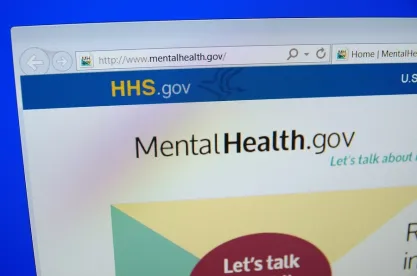On December 30, 2020, the US Department of Health and Human Services (HHS) Office of General Counsel (OGC) released an Advisory Opinion concluding that providers participating in the 340B Program (“covered entities”) are entitled to purchase covered outpatient drugs at 340B discounted prices even when those drugs are distributed by third-party contracted pharmacies (“contract pharmacies”) on the covered entity’s behalf. The Advisory Opinion responds to drug manufacturers who have recently declined to distribute 340B drugs through contract pharmacies. The Advisory Opinion is available here.
IN DEPTH
Background
Guidance issued by the Health Resources and Services Administration (HRSA) in 1996 provided that 340B covered entities may elect to sign a contract with a pharmacy to dispense drugs purchased at 340B prices to the covered entity’s patients. The 1996 guidance generally limited the contract pharmacy option to those covered entities without an in-house pharmacy and to one pharmacy per covered entity. In 2010, HRSA released new guidance expanding contract pharmacy arrangements to all covered entities and removing the limit on the number of pharmacies with which a covered entity could contract.
Recently, certain drug manufacturers have established restrictions or prohibitions on the sale of 340B drugs for dispensing through contract pharmacy arrangements. These programs have been based, in part, on claims by manufacturers that: (1) the use of contract pharmacies is not contemplated by the 340B Statute, (2) the guidance issued by HRSA in 1996 and 2010 were not issued in accordance with legal requirements pursuant to the Administrative Procedures Act because they represented substantive changes in the rights and obligations of the affected parties without promulgation through regulation, and (3) the use of contract pharmacies has led to duplicate discounts and diversion of drugs to ineligible patients. Covered entities have generally taken the position that these actions by drug manufacturers violate the 340B Statute, which requires that drug manufacturers offer covered entities covered outpatient drugs at 340B prices but does not expressly refer to the use of contract pharmacies.
The Advisory Opinion
The Advisory Opinion sets forth OGC’s analysis of the 340B Statute and addresses both its plain meaning and the statute’s purpose and history. With respect to the 340B Statute’s plain meaning, OGC emphasized that the “core requirement” of the 340B Statute is that manufacturers offer covered outpatient drugs at or below the ceiling price for drugs “purchased by” covered entities. With respect to the meaning of “purchased by,” OGC reasoned that the contract pharmacy model, whereby drugs are sold by the manufacturer to the covered entity and the covered entity takes title and pays the manufacturer, constitutes the “purchase” of the drug, regardless of where the drug is ultimately delivered (e.g., to a contract pharmacy).
OGC further acknowledged that contract pharmacies have been an integral part of the 340B Program since its outset. OGC also reasoned that HRSA’s consistent position over the prior decades relating to contract pharmacies was not legislative rulemaking, but rather guidance intended to explain the statutory language by clarifying its meaning—it did not create new law, rights or duties that were not otherwise present in the statute. The Advisory Opinion does not, however, include the level of consideration of Administrative Procedures Act requirements that would be conducted under judicial review by a federal court.
OGC rejected the rationale that manufacturers may restrict distributing 340B drugs to contract pharmacies because such arrangements lead to a heightened risk of diversion and duplicate discounts. In the Advisory Opinion, OGC noted that manufacturers have not identified any language in the 340B Statute that would support such a position. However, OGC recognized that the 340B Statute provides specific actions manufacturers may take in cases of suspected duplicate discounts or diversion (i.e., conducting an audit and submitting a claim for administrative dispute resolution), but the 340B Statute does not allow manufacturers to cut off contract pharmacies as a preventative measure.
Finally, OGC opined that the legitimate transfer of drugs to contract pharmacies to dispense to patients of the covered entity does not constitute diversion of 340B drugs. OGC reasoned that diversion means that “on net, covered outpatient drugs end up in the hands of persons who are not patients of the covered entity.” It then recognized that if transferring 340B drugs to an agent of the covered entity, such as a contract pharmacy, was considered diversion, covered entities would be prohibited from handing off 340B drugs to anyone other than an employee or patient—even shipping 340B drugs to patients by common couriers would be prohibited. Ultimately, OGC concluded that the prohibition on a covered entity “otherwise transfer[ring]” a 340B drug must be interpreted in the context of a “resale” of the drug.
Under the position taken by OGC in the Advisory Opinion, manufacturers are required by statute to sell covered outpatient drugs to covered entities at no more than the 340B ceiling price—regardless of the location where the drugs are delivered or the drug dispensing arrangement.
Key Takeaways
Potential Impact on Contract Pharmacy Distribution Models
The Advisory Opinion sets forth the current legal view of the HHS OGC—it is not a law or regulation. It represents the HHS OGC’s legal interpretation of the law as of the day it was published. As a general matter, HHS OGC advisory opinions do not create new legal rights or obligations; rather, they clarify HHS OGC’s interpretation of existing legal rights or obligations.
In this case, the Advisory Opinion clarifies HHS’s interpretation that the 340B Statute requires manufacturers to offer covered outpatient drugs at no more than the 340B price even if the purchased drugs are distributed through a contract pharmacy. While it follows from the Advisory Opinion that the HHS OGC would consider manufacturers charging covered entities above the 340B price for drugs distributed through contract pharmacies to be overcharging covered entities in violation of the 340B Statute, the issuance of the Advisory Opinion does not result in imposition of penalties on manufacturers or require that they resume sales to covered entities at 340B prices. The Advisory Opinion could portend HRSA manufacturer audits or other enforcement actions against manufacturers for noncompliance with the 340B Statute. The Advisory Opinion may also form the foundation for covered entities to challenge purchasing restrictions in the new Administrative Dispute Resolution (ADR) process set to take effect next month. For additional analysis of the ADR process, please see our previous On The Subject, linked here.
Ultimately, it will likely be necessary for a federal court to determine the merits of the arguments and conclusions set forth in the Advisory Opinion. On December 11, 2020, a group of hospital plaintiffs filed a lawsuit against HHS alleging HRSA arbitrarily and capriciously failed to require manufacturers to ship 340B drugs to contract pharmacies or refer the matter to the HHS Office of Inspector General, in violation of the Administrative Procedure Act.
Relevance to Manufacturer Data Collection and Auditing Activities
The Advisory Opinion concludes that manufacturers are required to offer 340B drugs to covered entities that use contract pharmacies to aid in distributing 340B drugs, but its conclusion does not expressly address recent data sharing requirements imposed by certain manufacturers for covered entities to register contract pharmacies as distribution locations. However, the Advisory Opinion reaches its conclusion by reasoning that “neither [HRSA] nor a private actor is authorized by section 340B to add requirements to the statute,” and “if a covered entity using contract pharmacy services requests to purchase a covered drug from a participating manufacturer, the statute directs the manufacturer to sell the drug at the discounted price” (quoting and validating HRSA guidance). The Advisory Opinion further provides that manufacturers concerned about covered entity compliance must: (1) conduct an audit and (2) submit the claim to the ADR process. It continues that a covered entity’s failure to comply with the audit requirement still does not relieve manufacturers from the obligation to conform to the pricing requirements as provided in the 340B Statute.
A Change of Administration
It is likely that the upcoming administration of President-elect Joseph R. Biden would act in accordance with the conclusions of the Advisory Opinion. On December 14, 2020, California Attorney General Xavier Becerra along with attorneys general of 27 states and the District of Columbia issued a letter to HHS calling on Secretary Alex Azar to address the violations of the 340B Statute related to the statutory responsibilities of drug manufacturers in providing covered outpatient drugs at 340B ceiling prices for drugs dispensed at contract pharmacies. Notably, Attorney General Becerra is Mr. Biden’s nominee for Secretary of HHS.








 />i
/>i

